Search
Did you mean: Elam?
Search Results
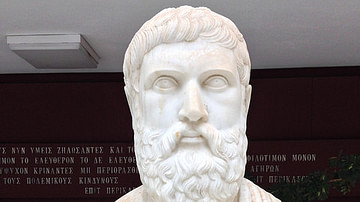
Definition
Miltiades
Miltiades (c. 555-489 BCE) was the Athenian general who defeated the Persians at the Battle of Marathon in 490 BCE. The Greeks faced a Persian force of superior numbers led by the commanding admiral Datis, who had been sent by their king...

Definition
Ancient Nara
Nara, located around 30 km south of modern Kyoto, was the capital of ancient Japan between 710 and 784 CE. It gave its name to the Nara Period (710-794 CE), although the name during the 8th century CE was Heijokyo. Modelled on the Chinese...

Definition
Samson
Samson was one of the last judges in the Hebrew Book of Judges who arose as a leader of the Jews when they settled in Canaan. He was a Nazirite, known for his incredible strength, the secret of which was discovered by Delilah who betrayed...
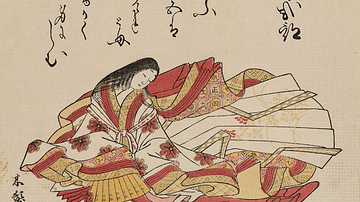
Definition
Izumi Shikibu
Izumi Shikibu was a writer, poet, and member of the Japanese court during the Heian Period (794-1185 CE). Her birth date is variously given as sometime in the 970's CE, and she died in the 1030's CE. In her celebrated memoirs, known as the...
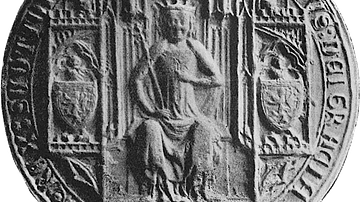
Definition
Robert II of Scotland
Robert II of Scotland ruled as king from 1371 to 1390. Born Robert Stewart, he succeeded the heirless David II of Scotland (r. 1329-1371) and so founded the royal house of Stewart. Dividing Scottish estates between his many offspring, Robert...
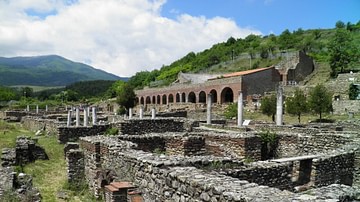
Definition
Herakleia Lynkestis
Herakleia Lynkestis (Heraclea Lyncestis; Ἡράκλεια Λυγκηστίς) was a city in the ancient kingdom of Macedon not far from modern Bitola, founded c. 358 BCE by Philip II of Macedon (r. 359-336 BCE) as a governing centre for his new expansions...

Image
Minamoto no Yoritomo Statue
A wooden sculpture of Minamoto no Yoritomo (1147-1199 CE), leader of the Minamoto clan and Shogun of Japan from 1192-1199 CE. (Tokyo National Museum)
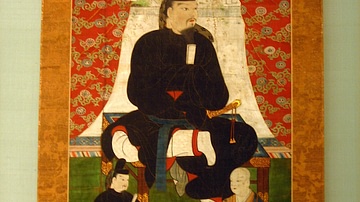
Image
Fujiwara no Kamatari
A 16th century CE silk scroll depicting Fujiwara no Kamatari (614-669 CE) and his two sons, the founder of the powerful Fujiwara clan which dominated Japanese government during the Heian Period (794-1185 CE). (Los Angeles County Museum of...

Image
Fujiwara no Yoshifusa
A depiction by artist Kikuchi Yosai of Fujiwara no Yoshifusa (804-872 CE), member of the powerful Fujiwara clan and the first Japanese regent not of royal blood.

Image
Minamoto no Yoshitsune
An illustration by Kikuchi Yosai of the Japanese military commander Minamoto no Yoshitsune (1159-1189 CE) of the Minamoto clan.